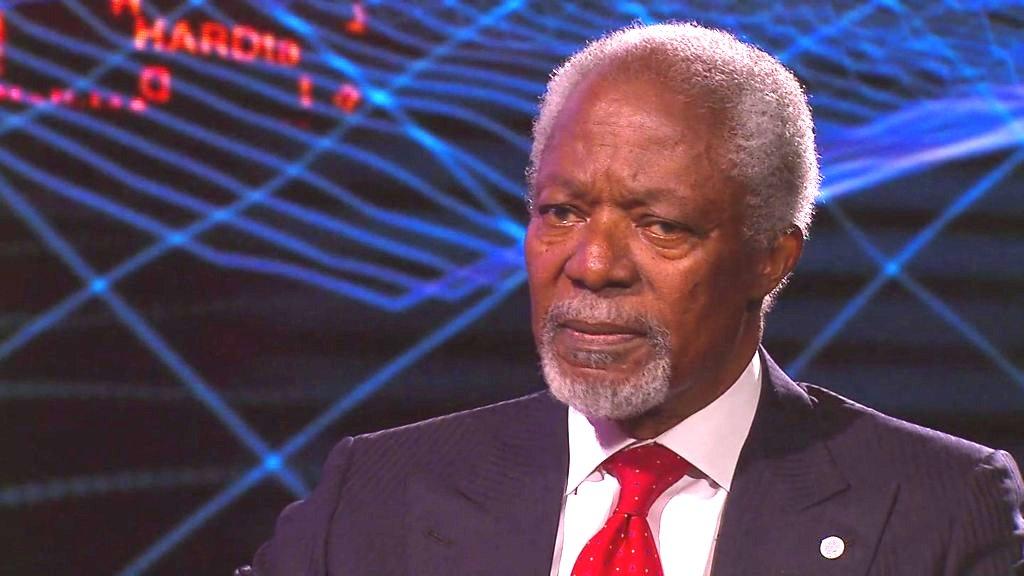Kofi Annan: Remembering the world's top diplomat
- Published
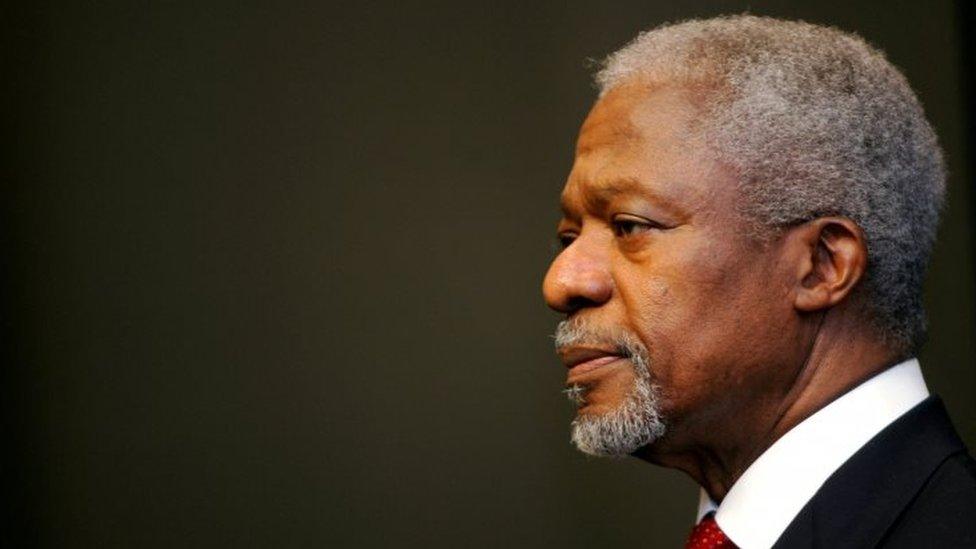
Kofi Annan, who has died at the age of 80, spent nine years in charge of the world's largest international diplomatic body, the UN, in a tenure that covered the 9/11 attacks and the US-led invasion of Iraq in 2003. His later career saw him mediate in some of the biggest crises of the 21st Century, including the Syrian civil war. The BBC's UN reporter in Geneva, Imogen Foulkes, shares her memories of the top diplomat.
I have a book on my shelf entitled 'We the Peoples, a UN for the 21st Century'. It is a collection of Kofi Annan's speeches during his time as UN secretary-general, their subject matter ranging from climate change, to peacekeeping, to HIV/AIDS, to genocide.
A list, if ever one was needed, of why the world needs a multilateral body to solve big problems, and a list which explains why even the UN's harshest critics tend to admit that, if "the UN didn't exist, we'd have to invent it".
I'm particularly fond of this book because Kofi Annan gave it to me himself, after we had taken part in a panel discussion four years ago at the UN in Geneva, based on his time as secretary-general.
There are a great many panel discussions at the UN, and often the turnout is modest, but not that day. The room, which has space for hundreds, was full, and still more people queued outside.
Cynics might think there would be no better way to promote a book about the UN than to hold a discussion about it inside the UN itself.
They might be right, but all the proceeds from that book were donated to the UN's programme to combat HIV/Aids, and much of the discussion that day was devoted to that cause.
Nice guy
It is that generosity of spirit, that dedication to supporting the most vulnerable people on our planet, for which I like to think Kofi Annan will be best remembered.
He came often to Geneva while he was secretary-general, more often than many of his predecessors or his successors; after all the power and the politics of the UN is concentrated in New York, where the UN Security Council so often tries, and so often fails, to resolve global conflicts.
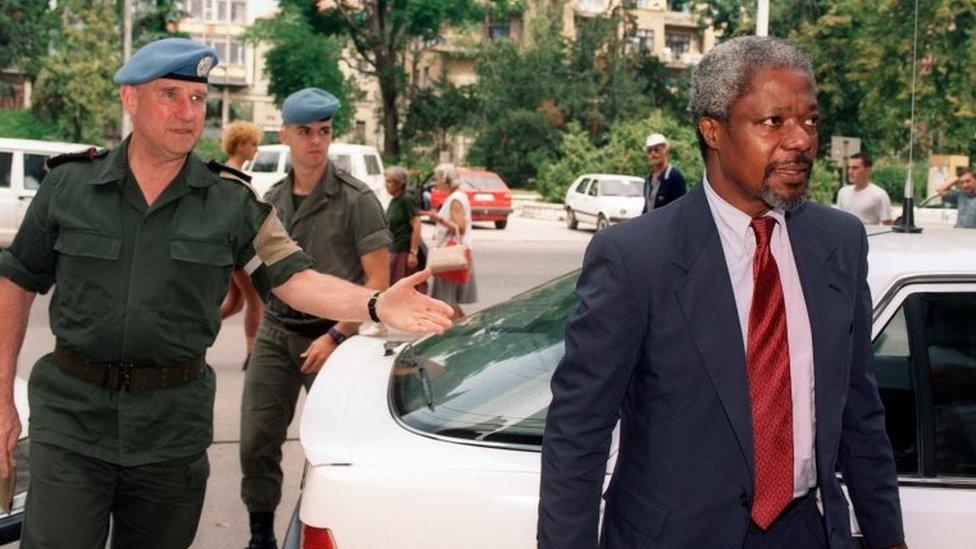
Kofi Annan served as head of UN peacekeeping during the Rwandan genocide and war in Bosnia. Here he is pictured arriving in Bosnia in 1993
But Kofi Annan took care to support the aid agencies in Geneva, and to draw attention to the sometimes unrewarded work they do. While here, he also made time, whenever he could, for the media.
He was unfailingly friendly and courteous, and he did not dodge questions, famously bluntly telling the UN press corps that he viewed the US/UK-led invasion of Iraq as illegal.
He was also simply a nice guy: I can remember his amused sympathetic smile when he saw me painfully kneeling at the front of the press pack, microphone outstretched.
All of the Geneva journalists will remember that he didn't forget a face, stopping to say hello even if he didn't have time to talk.
'Champion for peace'
The post of UN secretary-general is arguably the world's toughest diplomatic role: Kofi Annan did the job during the war in Kosovo, when 9/11 happened, during the invasion of Iraq, and during a time when climate change came to be recognised as a major threat to the planet.
Annan told the BBC in April that the world had become "particularly messy"
The UN, with him at its head, did not succeed in tackling every challenge.
Some critics point to mistakes: the inability of the UN to prevent the slaughter in Rwanda and Bosnia during Mr Annan's time as head of UN peacekeeping, or the allegedly weak UN response to the oil for food scandal, in which some unscrupulous businesses enriched themselves from a UN scheme designed to soften the impact of UN sanctions on the Iraqi people by allowing the supervised sale of some Iraqi oil.
But in Geneva, Kofi Annan will be remembered for the way he drew attention, over and over again, to the plight of those caught up in war, environmental disaster, or simply grinding poverty.
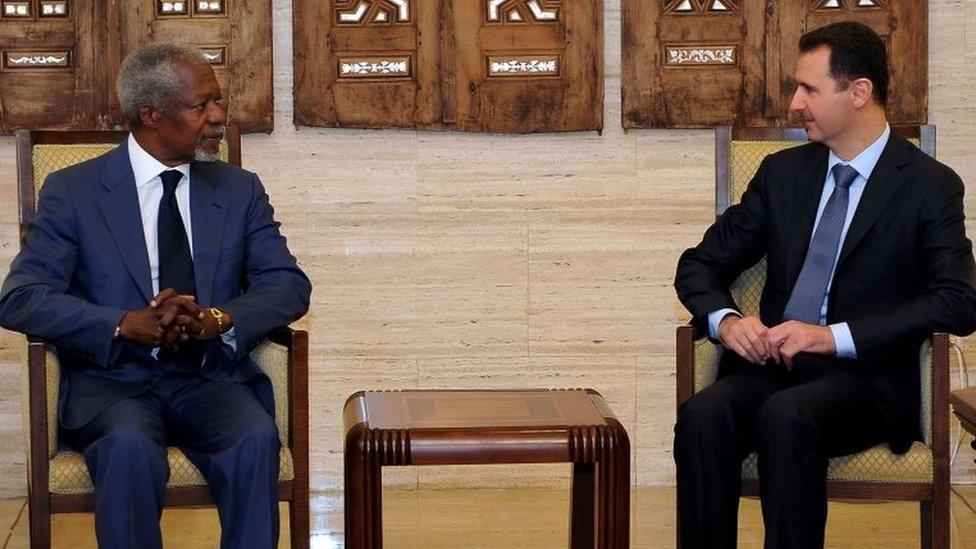
Kofi Annan faced some impossible tasks during his time as the UN's special envoy in Syria. In July 2012, he came face-to-face with Syrian President Bashar al-Assad
The way he quietly but firmly reminded world leaders, however powerful, that they needed to put their duty to their citizens above their political careers.
The tributes to him today from Geneva have been many: the UN Human Rights Commissioner Zeid Ra'ad al Hussein described him as "humanity's best example, the epitome, of human decency and grace".
Peter Maurer, the head of the International Committee of the Red Cross, expressed his sadness at the loss of a "true humanitarian leader and an ardent champion for peace".
Kofi Annan will be mourned around the world, but in Geneva there is not just sadness at the loss of a man dedicated to peace and human rights, but grief at the loss of a friend.
- Published18 August 2018
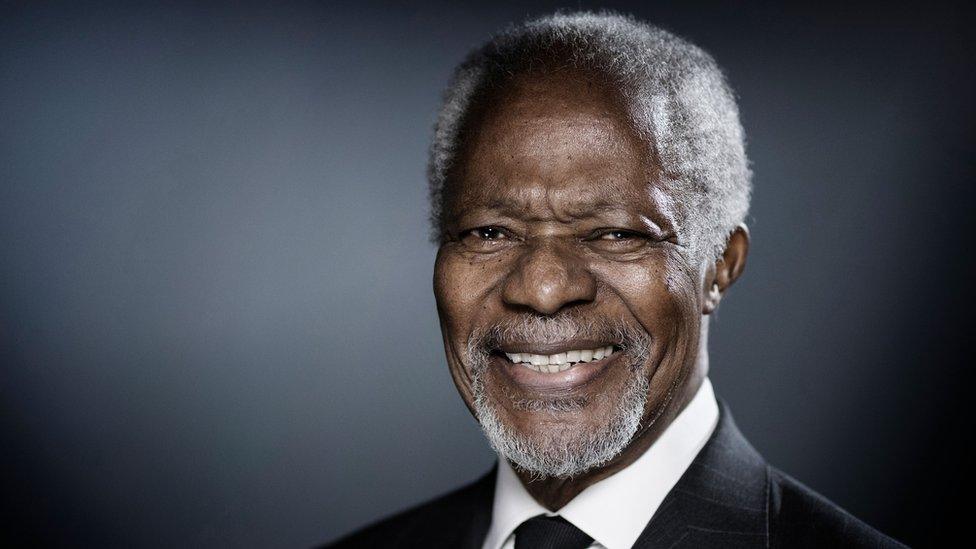
- Published18 August 2018
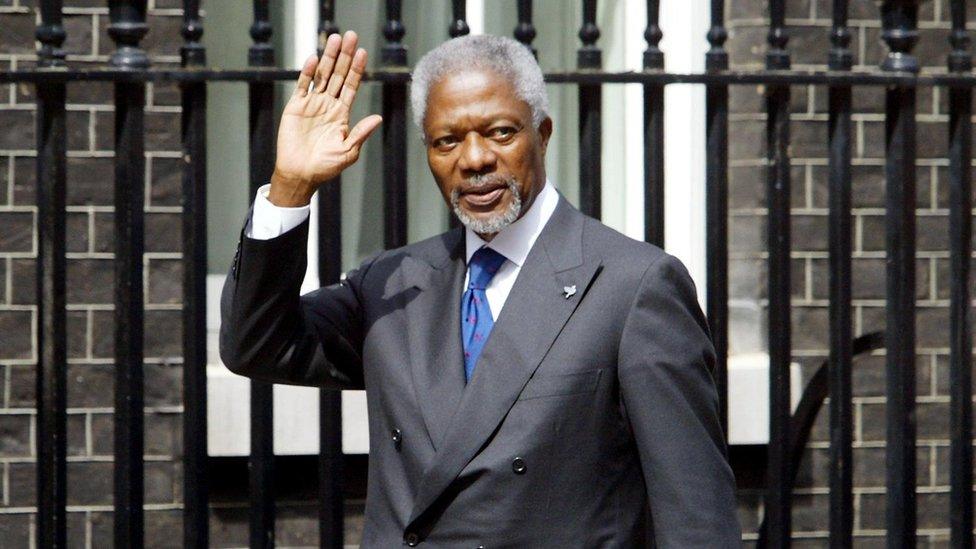
- Published18 April 2018
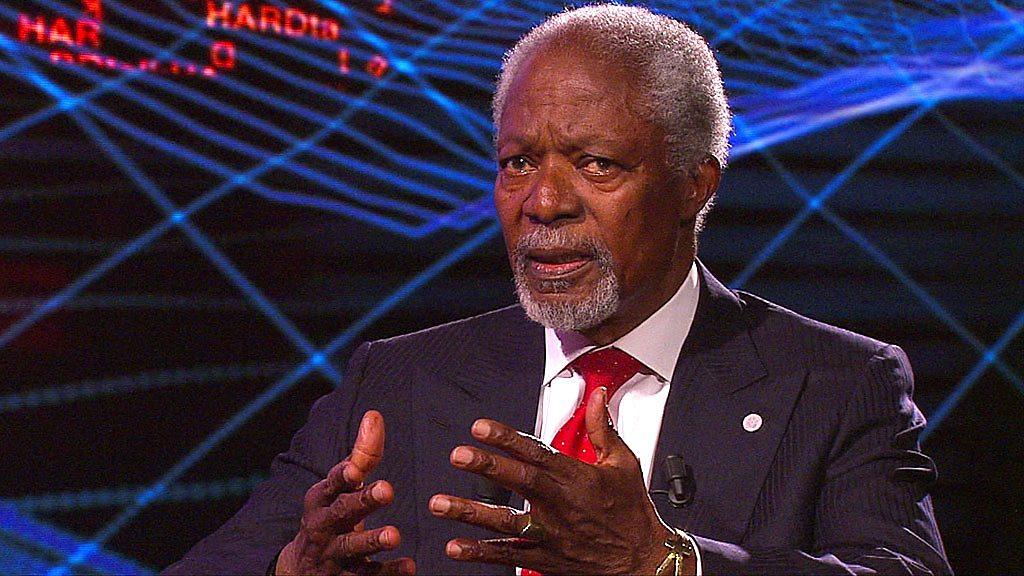
- Published13 April 2018
